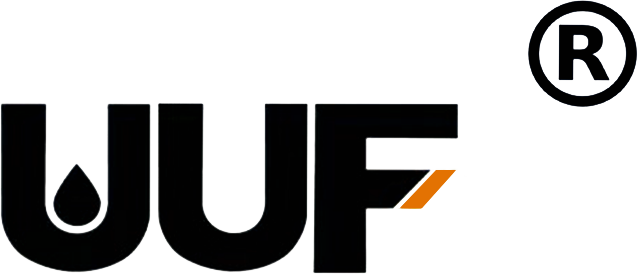Toyota Oil Seal vs. Other Brands: A Comprehensive Comparison for Industrial Applications
Time:
2025-04-21
Toyota Oil Seal vs. Other Brands: A Comprehensive Comparison for Industrial Applications In the world of industrial machinery and equipment, the reliability of components plays a crucial role in overall performance. One often-overlooked yet essential component is the oil seal. In this article, we will delve into a detailed comparison between Toyota oil seals and other brands, examining their featu
Toyota Oil Seal vs. Other Brands: A Comprehensive Comparison for Industrial Applications
In the world of industrial machinery and equipment, the reliability of components plays a crucial role in overall performance. One often-overlooked yet essential component is the oil seal. In this article, we will delve into a detailed comparison between Toyota oil seals and other brands, examining their features, advantages, and suitability for various applications. This comprehensive evaluation aims to provide insights that empower you to make informed purchasing decisions.
Table of Contents
- 1. Introduction to Oil Seals
- 2. What is an Oil Seal?
- 3. Importance of Oil Seals in Industrial Applications
- 4. Overview of Toyota Oil Seals
- 5. Comparison with Other Brands
- 6. Factors to Consider When Choosing Oil Seals
- 7. Customer Feedback and Market Perception
- 8. Conclusion
- 9. Frequently Asked Questions
1. Introduction to Oil Seals
Oil seals, also known as lip seals or rotary seals, are critical components in many industrial applications. They prevent the leakage of lubricants and protect the internal components of machinery from contaminants such as dust and moisture. Understanding the differences among various brands, particularly Toyota, can help in selecting the right seal for your needs.
2. What is an Oil Seal?
An oil seal is a mechanical component designed to retain lubrication while preventing the ingress of dirt and debris. Typically constructed from elastomers or thermoplastics, oil seals feature a sealing lip that creates a barrier against leakage. They are utilized in various machinery, including automotive engines, pumps, and gearboxes.
3. Importance of Oil Seals in Industrial Applications
The function of oil seals extends beyond mere fluid retention. They are pivotal in maintaining the operational efficiency of machinery. Proper sealing reduces wear and tear on components, contributes to energy efficiency, and prolongs equipment lifespan. Therefore, choosing high-quality oil seals is essential for optimizing performance and reducing maintenance costs.
4. Overview of Toyota Oil Seals
Toyota is renowned for its commitment to quality and innovation in the automotive and industrial sectors. Their oil seals are designed to meet stringent performance standards. Let's explore the attributes that set Toyota oil seals apart from the competition.
4.1 Quality and Durability of Toyota Oil Seals
Toyota oil seals are manufactured using advanced materials and technologies that enhance durability and resistance to extreme conditions. These seals are engineered to withstand high temperatures, pressure variations, and exposure to various chemicals. This exceptional quality ensures minimal leakage and a longer lifecycle compared to many other brands.
4.2 Common Applications of Toyota Oil Seals
Toyota oil seals are versatile and find applications across several industries, including automotive, manufacturing, and construction. Their seals are commonly used in engines, transmissions, differential assemblies, and hydraulic systems, making them a popular choice for OEM (original equipment manufacturer) applications.
5. Comparison with Other Brands
To provide a well-rounded perspective, we will compare Toyota oil seals with three other prominent brands in the market: Brand A, Brand B, and Brand C. Each comparison will focus on quality, price, and application suitability.
5.1 Brand A: Pros and Cons
Brand A offers a range of oil seals that are competitively priced. While they may appeal to budget-conscious purchasers, their durability and performance may not match the standards set by Toyota. Users have reported issues with leakage and premature wear in high-stress applications.
5.2 Brand B: Pros and Cons
Brand B is known for its innovative designs and unique sealing technologies. They provide excellent performance in moderate conditions but may not hold up as well in extreme environments. Users appreciate their value, but they may require more frequent replacements compared to Toyota seals.
5.3 Brand C: Pros and Cons
Brand C offers high-quality oil seals manufactured using premium materials. They have a solid reputation for reliability in severe applications. However, their price point is often higher, which may deter some buyers. Despite this, many users find that the added cost translates into lower maintenance and operational costs over time.
6. Factors to Consider When Choosing Oil Seals
When selecting an oil seal, various factors should be taken into account:
- Material: Consider the material composition, as it affects durability and compatibility with lubricants and contaminants.
- Size and Fit: Ensure the seal dimensions match the application requirements to prevent leaks.
- Temperature and Pressure Ratings: Check the operational limits to ensure the seal can withstand the application conditions.
- Brand Reputation: Consider brands with a proven track record of reliability and customer satisfaction.
- Cost: Weigh the importance of upfront costs against long-term performance and maintenance expenses.
7. Customer Feedback and Market Perception
Customer reviews and feedback play a significant role in evaluating oil seals. Toyota oil seals consistently receive high praise for their reliability and effectiveness in critical applications. Users emphasize the long lifespan and minimal maintenance needs associated with Toyota seals. In contrast, while other brands have their strengths, they often fall short in durability or require more frequent replacement, which can lead to increased operational costs.
8. Conclusion
In the competitive landscape of oil seals, **Toyota** emerges as a clear leader, particularly in terms of quality and reliability. Their commitment to engineering excellence ensures that their oil seals stand the test of time, providing peace of mind for industrial applications. While other brands may offer attractive price points or innovative features, the long-term value offered by Toyota oil seals is hard to surpass. Ultimately, the choice of oil seal should consider the specific requirements of your application, but for many, **Toyota oil seals** represent the best balance of performance, durability, and efficiency.
9. Frequently Asked Questions
1. How do I know if my oil seal needs replacement?
Signs of wear, such as oil leaks or visible cracks, indicate that it may be time for a replacement. Regular inspections can help identify issues early.
2. Are Toyota oil seals more expensive than other brands?
While the upfront cost may be higher, the durability and reduced maintenance needs often make them a more cost-effective option in the long run.
3. Can I use oil seals from different brands interchangeably?
Interchanging seals may lead to compatibility issues, resulting in leaks or failures. It is best to use seals that meet the original specifications.
4. What is the typical lifespan of an oil seal?
The lifespan varies depending on the application, operating conditions, and seal quality, but high-quality oil seals can last several years under normal use.
5. How should I maintain oil seals to ensure longevity?
Regularly inspect seals for signs of wear or damage, and ensure that they are properly lubricated and installed to minimize the risk of failure.
Keyword:
Toyota oil seal


















